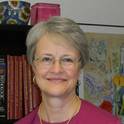
Article
A comprehensive analysis of the androgen receptor gene and risk of breast cancer: results from the National Cancer Institute Breast and Prostate Cancer Cohort Consortium (BPC3)
Breast Cancer Research
(2006)
Abstract
Introduction: Androgens have been hypothesised to influence risk of breast cancer through several possible mechanisms, including their conversion to estradiol or their binding to the oestrogen receptor and/or androgen receptor (AR) in the breast. Here, we report on the results of a large and comprehensive study of the association between genetic variation in the AR gene and risk of breast cancer in the National Cancer Institute Breast and Prostate Cancer Cohort Consortium (BPC3). Methods: The underlying genetic variation was determined by first sequencing the coding regions of the AR gene in a panel of 95 advanced breast cancer cases. Second, a dense set of markers from the public database was genotyped in a panel of 349 healthy women. The linkage disequilibrium relationships (blocks) across the gene were then identified, and haplotype-tagging single nucleotide polymorphisms (htSNPs) were selected to capture the common genetic variation across the locus. The htSNPs were then genotyped in the nested breast cancer cases and controls from the Cancer Prevention Study II, European Prospective Investigation into Cancer and Nutrition, Multiethnic Cohort, Nurses' Health Study, and Women's Health Study cohorts (5,603 breast cancer cases and 7,480 controls). Results: We found no association between any genetic variation (SNP, haplotype, or the exon 1 CAG repeat) in the AR gene and risk of breast cancer, nor were any statistical interactions with known breast cancer risk factors observed. Conclusion: Among postmenopausal Caucasian women, common variants of the AR gene are not associated with risk of breast cancer.
Disciplines
Publication Date
September 20, 2006
Citation Information
David G. Cox, Hélène Blanché, Celeste L. Pearce, Eugenia E. Calle, et al.. "A comprehensive analysis of the androgen receptor gene and risk of breast cancer: results from the National Cancer Institute Breast and Prostate Cancer Cohort Consortium (BPC3)" Breast Cancer Research Vol. 8 (2006) Available at: http://works.bepress.com/susan_hankinson/28/


http://breast-cancer-research.com/content/8/5/R54This work is licensed under a Creative Commons Attribution 3.0 Unported License.